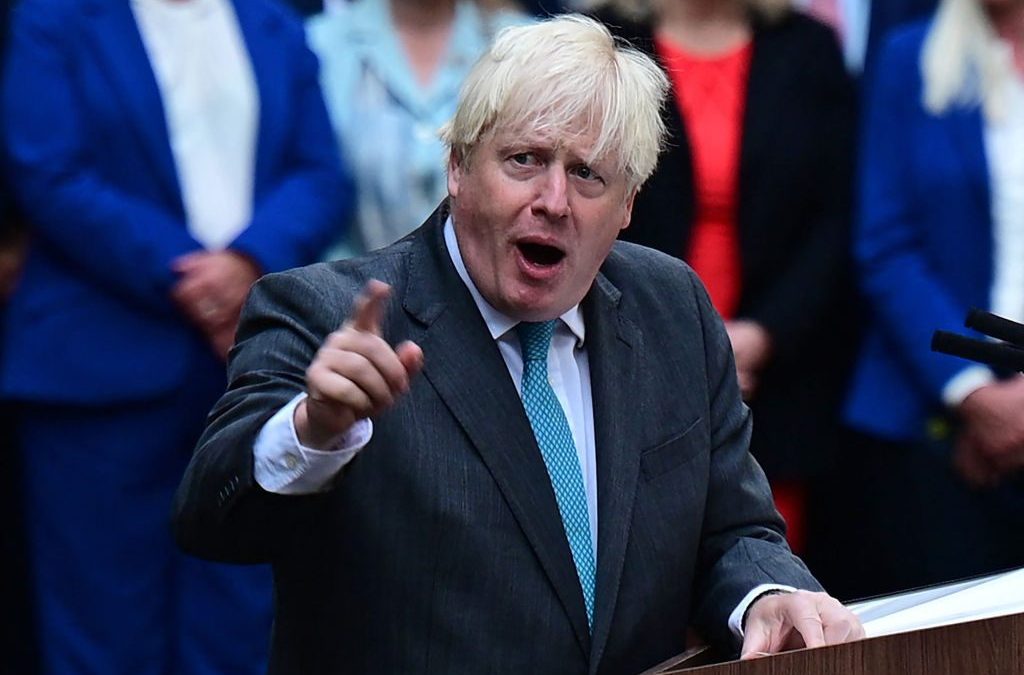Unlike Erasmus, the Turing Scheme enabled British students to go abroad but did not support reciprocal exchanges from other countries to the UK
Boris Johnson’s post-Brexit student exchange programme, the Turing Scheme, will have its funding slashed in the Spending Review, The i Paper can reveal.
Sources in Whitehall and the university sector said the scheme – which costs about £100m a year – will have its funding cut as the UK plots a return to the EU’s Erasmus exchange scheme.
The long-term future of the scheme is uncertain but it may yet continue in a slimmed down form alongside Erasmus, The i Paper understands.
It comes amid warnings that universities face a “grim” outlook in next week’s Spending Review.
The Turing Scheme was launched in 2021 after Johnson’s Conservative government decided not to remain signed up to Erasmus when the UK left the EU.
At the time, Johnson said the scheme would be a “truly global programme” which would help students “experience fantastic education opportunities in any country they choose”.
Unlike Erasmus, the Turing Scheme enabled British students to go abroad but did not support reciprocal exchanges from other countries to the UK. It has funded placements for tens of thousands of students to study abroad in countries around the world.
Opinions about the scheme have been mixed, with some institutions applauding its global reach and the opportunities for students from disadvantaged backgrounds, but others criticising excessive red tape.
The future of the Turing Scheme has been thrown into doubt because of a combination of factors.
Funding for the scheme had not been committed beyond next year, and the Department for Education has received a tight settlement in the Spending Review in which schools and the early years have been prioritised above universities, The i Paper understands.
In last month’s Brexit reset, Britain and the EU also struck a deal to “work towards association of the UK” to Erasmus, raising questions about the continued relevance of the Turing Scheme.
A Whitehall source said there would be “reductions in Turing” in the Spending Review, with the possibility of an eventual full “phasing out” – though The i Paper understands that a final decision has not yet been made on this.
With the UK required to make a financial contribution if it wants to rejoin Erasmus, a university leader said there was a “logic in removing Turing funding if we are back in Erasmus as the money will need to be found from somewhere”.
The leader questioned whether it would be “realistic” for the Government to operate the two schemes in parallel “given current funding constraints”.
Another senior higher education source said: “We’ve had a very clear indication [from the DfE] that things are grim, and to expect grim in the Spending Review.”
“We are expecting it to be very, very tough times.”
The source said that some operational issues with the Turing Scheme had resulted in funding being underutilised, making it “more difficult to make the case” to the Treasury to maintain its budget.
While Labour has targeted rejoining Erasmus, the negotiation about the terms of the UK’s return will take time, with education sources seeing the most likely date as 2028, when the next stage of the programme is due to begin.
A previous criticism of Erasmus was that Britain took significantly more students from Europe than it sent in return, so the Brexit reset communique promises that the terms of the UK’s return will be on “mutually agreed financial terms” to “ensure a fair balance as regards the contributions of and benefits to the UK”.
The Government has said that it is “taking forward the next stage of negotiations on the clear mutual understanding that the UK will only associate to Erasmus+ on significantly improved financial terms”.
The DfE was contacted for comment.
